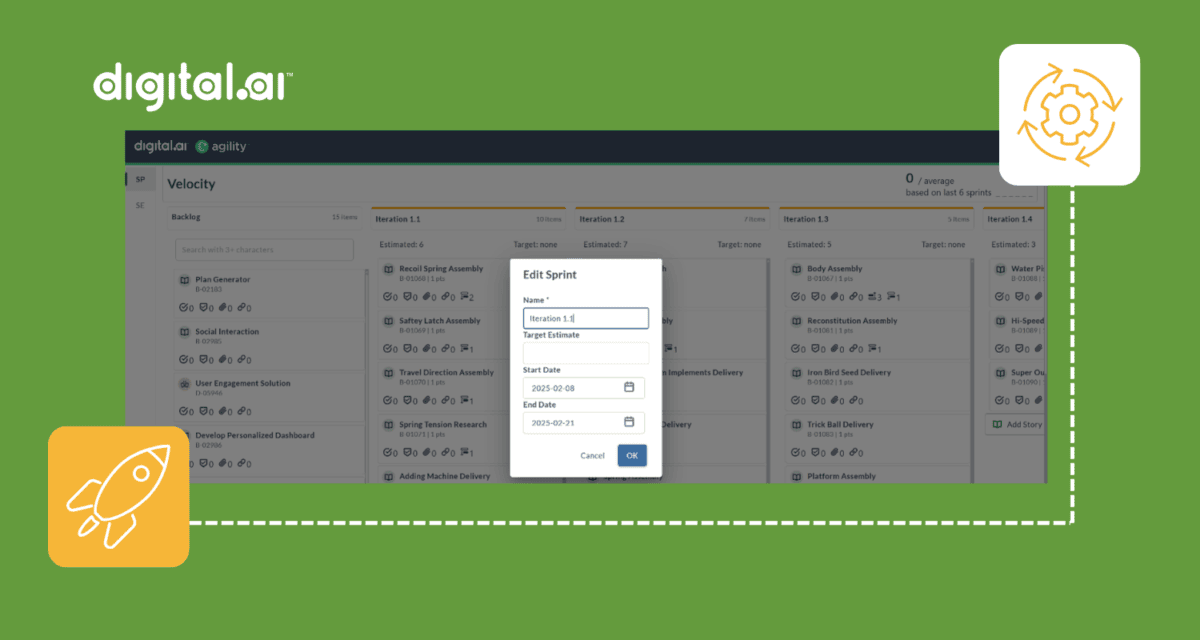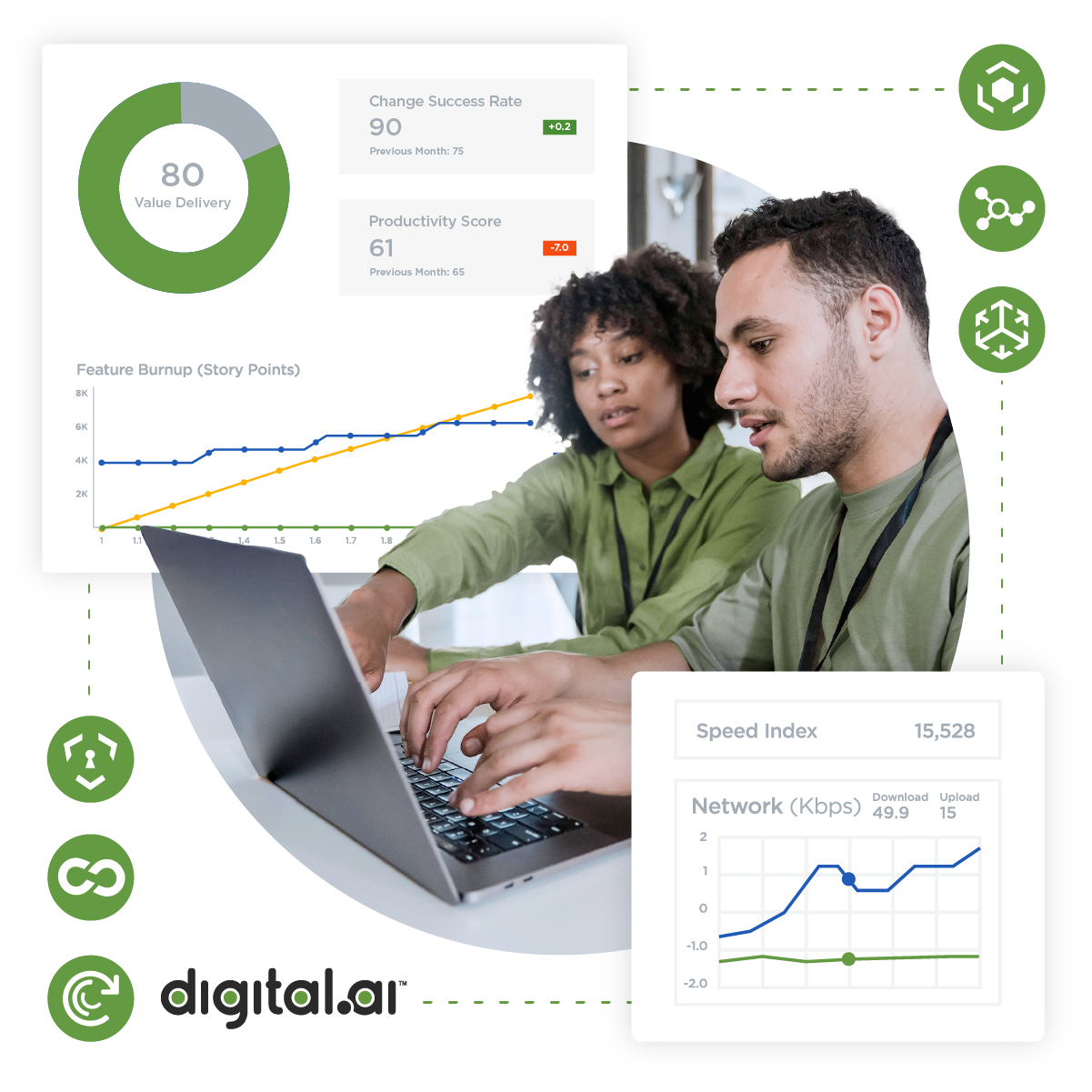Table of Contents
Related Blogs
Overview of the Engineering Roles
Platform engineers and software engineers have differing focuses and responsibilities. This article explores these differences, delving into their roles, responsibilities, skills, and career trajectories.
Importance of Understanding the Differences
Understanding the differences between platform engineering and software engineering enhances collaboration among team members by clarifying roles and tasks, streamlining workflow, reducing confusion, and boosting productivity. Platform engineering is for those who enjoy building complex systems, while software engineering may appeal to those who like designing user-friendly apps.
What is a Platform Engineer?
A platform engineer designs, builds, and manages the internal platform for software applications, including hardware, software, networks, and cloud services. They focus on cloud computing, automation, and site reliability engineering (SRE). Ensuring platform availability, scalability, and security enables software engineers to focus on developing applications without worrying about infrastructure.
What is a Software Engineer?
A software engineer designs, develops, and tests software applications for users using programming and software engineering skills. They work through the entire development process, from gathering requirements to deploying the final product. Software engineers create user-friendly interfaces, write efficient code, and collaborate with various team members to meet business needs and user expectations.
Core Responsibilities
Platform engineers focus on building and maintaining the foundational systems necessary for software operation, while software engineers produce code to power applications.
Platform Engineer Responsibilities
Platform engineers focus on platform reliability, scalability, and data security. They collaborate with operations teams to maintain CI/CD pipelines for automated code processes, enabling faster software delivery. Monitoring systems are set up to track platform performance. They also develop internal tools for improved workflow efficiency and facilitate infrastructure-application integration for enhanced development experiences.
Software Engineer Responsibilities
Software engineers design, code, and test software to meet user needs. They collaborate with teams, write efficient code, ensure quality through testing, maintain documentation, and update code for long-term understanding. Their goal is to deliver valuable solutions that address real issues.
Skill Sets and Expertise
Both platform and software engineers must have a firm grasp of technology and good problem-solving skills. However, they often focus on different areas and skills.
Technical Skills for Platform Engineers
- Cloud Computing: Knowledge of AWS, Azure, or Google Cloud and services like EC2, S3, and Lambda.
- DevOps Practices: Proficiency in CI/CD tools such as Jenkins, GitLab CI, or CircleCI for automating software processes.
- Automation: Skilled in scripting with Python or Bash to automate infrastructure tasks and processes.
- Containerization: Familiarity with Docker and Kubernetes for managing microservices applications.
- Infrastructure-as-Code (IaC): Experience with Terraform or CloudFormation for defining infrastructure setups.
Platform engineers can build robust, automated platforms to streamline software delivery by mastering these skills.
Technical Skills for Software Engineers
Software engineers require proficiency in programming languages, algorithms, and design principles to create effective applications. Key technical skills include:
- Programming Proficiency: Knowledge of languages like Python, Java, C++, or JavaScript and understanding of object-oriented programming.
- Data Structures and Algorithms: Understanding arrays, linked lists, trees, graphs, and problem-solving algorithms.
- Version Control Systems: Proficiency in Git for branch management and collaboration.
- Testing Frameworks: Experience in unit, integration, and end-to-end testing for high-quality software.
Strong technical skills enable software engineers to handle complex tasks and offer innovative solutions.
Overlapping Skills
Platform and software engineers share key skills essential for effective collaboration. Understanding Git for version control is crucial for seamless code management. Familiarity with CI/CD practices ensures smooth code delivery. Strong communication and teamwork skills are vital for problem-solving and fostering a positive work environment.
Tools Commonly Used by Platform Engineers
Platform engineers use tools such as major cloud platforms like AWS, Azure, and Google Cloud, container technology such as Docker and Kubernetes, and infrastructure-as-code tools like Terraform or AWS CloudFormation. This allows them to follow SRE principles and construct automated, resilient platforms that cater to the demands of contemporary applications.
Tools Commonly Used by Software Engineers
Software engineers use a variety of tools in the software development process for coding, collaboration, and automation. These tools boost productivity, ensure code quality, and streamline development. Key tools include:
- Integrated Development Environments (IDEs): Visual Studio Code, IntelliJ IDEA, and Xcode aid in coding, debugging, testing, version control, and collaboration.
- Version Control Systems: Git is essential for code management, enabling seamless collaboration and project tracking.
- CI/CD Tools: Jenkins, GitLab CI, and CircleCI automate builds, testing, and code deployment for faster and more reliable software delivery.
These tools empower engineers to innovate in software development when coupled with strong programming skills and testing knowledge.
Work Environment
Platform and software engineers work in different work settings, with different tasks, objectives, and teams that they collaborate with.
Typical Work Environment for Platform Engineers
Platform engineers work closely with engineers, system admins, and DevOps teams to create and maintain internal platforms supporting software applications. With expertise in system design, networking, and security, they ensure reliability, scalability, and security. Their responsibilities include troubleshooting technical issues, collaborating on automation projects, and staying updated on emerging technologies. Effective communication skills are crucial for interacting with diverse stakeholders and simplifying technical concepts.
Typical Work Environment for Software Engineers
Software engineers collaborate with developers, product managers, and designers to create software products. They engage in brainstorming, design talks, and code reviews. Agile methods are commonly used for quick feedback and learning new technologies. Clear communication is crucial for effective teamwork and documentation.
Career Path and Opportunities
Platform engineering is a new area that is proliferating. It offers special chances for career growth. Software engineers, however, can follow different paths in web development, mobile app development, data science, or artificial intelligence.
Career Path for Platform Engineers
Platform engineering combines infrastructure and software engineering. Companies increasingly require skilled platform engineers to handle complex systems.
Platform engineers typically start in junior roles and advance to senior positions, taking on more complex tasks like designing and managing critical infrastructure, optimizing system performance, and leading complex projects supporting an organization’s core operations. Many also transition into leadership roles within their organizations.
As they gain experience and expand their skill set, platform engineers often explore areas like site reliability engineering (SRE), focusing on system performance and availability. This aligns with the increasing adoption of DevOps practices, highlighting the demand for engineers who bridge development and operations.
Career Path for Software Engineers
Software engineering is a dynamic field that offers numerous specialization paths for professionals to explore and excel in. Some popular specializations include web development, mobile app development, game development, data science, and artificial intelligence.
Software engineers can also transition into leadership positions such as team lead, technical architect, or engineering manager. These roles require substantial technical expertise and excellent communication and project management skills.
Participating in conferences and workshops and contributing to open-source projects are also valuable ways to enhance one’s skills and network within the industry.
Job Market Demand and Trends
The job market for both platform and software engineers is currently experiencing high demand, fueled by the rapid pace of technological advancement and the increasing reliance on software across various industries.
Technology trends such as cloud computing, big data, artificial intelligence (AI), and the Internet of Things (IoT) are creating new opportunities and driving demand for skilled engineers who can design, build, and maintain the complex systems that power these innovations.
| Role | Demand | Average Salary |
|---|---|---|
| Platform Engineer | High | $150,000-$200,000 |
| Software Engineer | Very High | $120,000-$180,000 |
Collaboration and Team Dynamics
It is important to know how software and platform engineering teams work together to achieve shared goals that lead to successful projects.
How Platform Engineers Collaborate with Other Roles
Platform engineers collaborate with various software development teams to ensure smooth deployments, reliable infrastructure, and effective application monitoring. By implementing DevOps practices, they bridge the gap between software development teams and operations, fostering a culture of shared responsibility and continuous improvement. Platform engineers also partner with security teams to enforce robust security measures and maintain compliance with industry standards. Effective communication and teamwork are crucial for platform engineers to meet the diverse needs of teams, resolve issues, and provide necessary support for successful software delivery.
How Software Engineers Collaborate with Other Roles
Software engineers collaborate with product managers to understand user needs and enhance product specifications, aiming to align software development with business objectives and customer value. They partner with designers to craft user-friendly interfaces. They engage daily with developers, testers, and quality assurance experts through teamwork and communication. Agile methods and transparent communication facilitate a seamless development process, exceeding stakeholder expectations.
Impact on the Development Lifecycle
Platform and software engineers are crucial in the software development process. Each enforces various best practices across the SDLC.
Role of Platform Engineers in the Development Lifecycle
Platform engineers establish the foundation for building, testing, and deploying software, ensuring scalability and security. They also streamline the development process by setting up standardized environments and tools.
Additionally, platform engineers focus on maintaining application reliability and scalability. They implement monitoring systems to resolve proactive issues, reduce downtime, optimize resource utilization, and enable applications to handle increased traffic and evolving business requirements efficiently.
Role of Software Engineers in the Development Lifecycle
Software engineers handle every step, from requirements gathering to deployment. Working closely with product managers and designers, they aim to create valuable solutions for users. Following coding standards and agile methods ensures well-organized software that can evolve. Beyond delivery, they maintain the software by fixing bugs, updating security, and incorporating user feedback to meet expectations throughout its lifecycle.
Pros and Cons
Like any job, platform and software engineering has its ups and downs. It’s important to consider these things based on your interests, career goals, and strengths.
Advantages and Disadvantages of Being a Platform Engineer
Advantages:
- Impact at Scale: Platform engineers enhance organizational efficiency and scalability.
- Cutting-Edge Technologies: Work with the latest cloud services, automation tools, and infrastructure tech.
- Problem-Solving and Innovation: Requires creative solutions for enhancing performance and reliability.
Disadvantages:
- Broad Responsibilities: Managing various technologies and infrastructure components can be challenging.
- On-Call Duties: Availability needed for fixing infrastructure issues outside regular hours.
- Team Dynamics Dependence: Success relies on effective collaboration with development, operations, and security teams.
Advantages and Disadvantages of Being a Software Engineer
Advantages:
- Tangible Results and Innovation: Software engineers create user-friendly products, fostering a sense of accomplishment and creativity.
- Focus on Problem-Solving: They excel at simplifying complex issues using creativity and logic.
- Versatility and Career Growth: Skills in software engineering are transferable across various industries, offering diverse career opportunities.
Disadvantages:
- Potential for High Cognitive Load: Software development demands intense focus, attention to detail, and handling complex concepts.
- Rapid Technological Advancements: Continuous learning is essential to keep up with evolving technologies.
- Project Deadlines and Time Constraints: Meeting project deadlines requires effective time management and the ability to work under pressure.
Integrating Software and Platform Engineering
Digital.ai’s AI-powered DevSecOps platform automates software releases and provides insights across the software lifecycle. This allows software engineers to efficiently test and review code and platform engineers to develop the infrastructure necessary to enforce repeatable and effective software development processes.
It supports integrated software delivery by creating standard templates and workflows and supporting deployments to any environment.
It also combines third-party data and Digital.ai products to provide a foundation of information that is reviewed by AI, enabling users to review risk, performance, and software quality instantly.
Digital.ai provides platform teams with the information necessary to optimize their systems, which enables software engineers to efficiently produce quality code and ensure that applications perform well over time.
Govern AI-Assisted Development
Explore
What's New In The World of Digital.ai
Digital.ai and Packaged Agile Partner to Help Enterprises and Agencies Reclaim the Value of Agile
Digital.ai and Packaged Agile: A Strategic Partnership That Reconnects Agile Delivery with Real Business & Mission Outcomes to be More Efficient & Effective
Plan, Execute, and Measure – All in One Environment: Digital.ai Agility 25.0 Feature Announcement
Discover what’s new in Digital.ai Agility 25.0 – updates to Rooms 2, OKR management, and more!
Better Together: Unlocking Endless Possibilities For Our Customers
This Valentine’s Day, join us in celebrating the unique stories that make our Digital.ai customers special!





